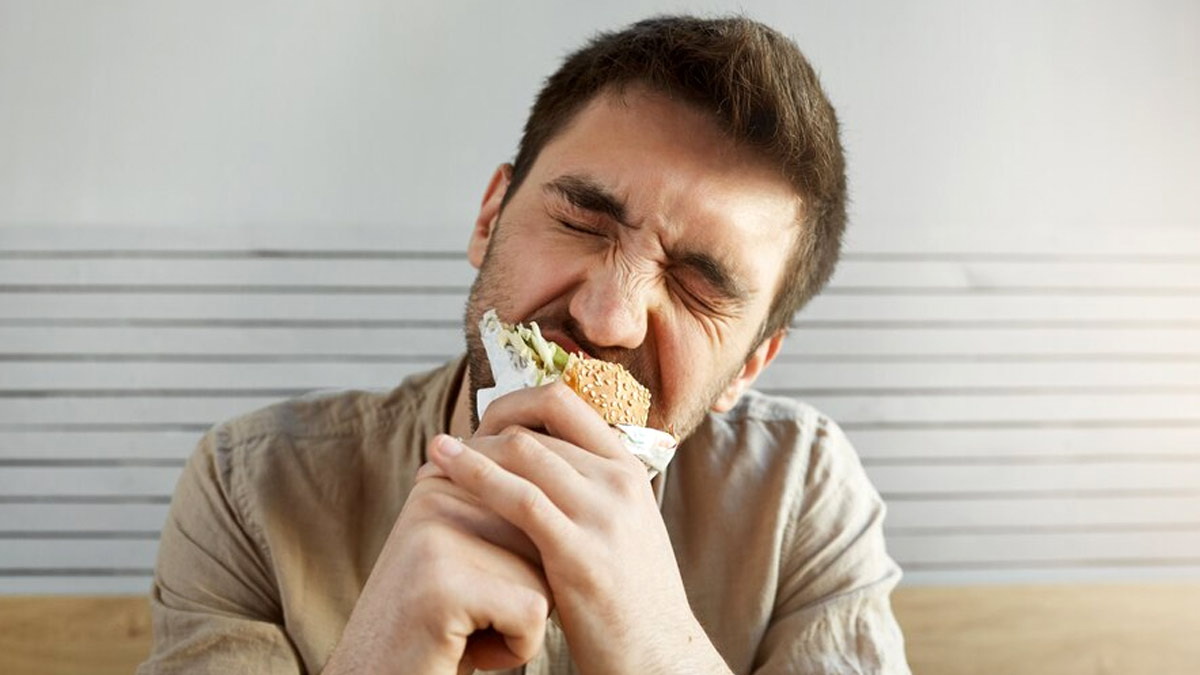
Have you ever felt your hunger not being satiated even after eating? This can be a concern that can cause overeating and weight gain. It can also be a sign of diabetes and this is why you should know about this condition called hyperphagia. We spoke to our expert Dr Aditya G Hegde, Consultant, Diabetes and Endocrinology, Manipal Hospital Old Airport Road, Bengaluru, who explained diabetic hyperphagia, its signs, and how to manage it.

“Hyperphagia refers to an abnormally strong, persistent sensation of hunger that is not satisfied with eating”, said Dr Hegde.
“Diabetes-related hyperphagia is a common symptom due to problems with insulin production and function. It can present in both type 1 and type 2 diabetes and often involves cravings for sugary and high-carbohydrate foods, leading to overeating”, said Dr Hegde.
According to the National Center for Biotechnology Information, hyperphagia hinders appropriate nutritional management of glycemia and both causes and accelerates diabetes.
Correlation between hyperglycemia and hyperphagia

“There is a direct correlation between hyperglycemia and hyperphagia, and insulin is the trigger”, said Dr Hegde.
He added, “Insulin is a hormone that allows glucose from the blood into cells so they can be used as energy. With diabetes, your body either doesn't make enough insulin or can't use it as it should (which is called insulin resistance). Because of this, glucose does not enter cells, regardless of the amount absorbed from food. Since no energy is produced, a person feels hungry because the body's cells are ‘starved’.”
“This sets up a vicious cycle whereby eating too much causes blood sugar to rise, which in turn creates insulin issues. Other mechanisms involved in this cycle include molecules like Leptin, Ghrelin, Neuropeptide Y, and various other hypothalamic networks”, highlighted Dr Hegde.
“Having high blood sugar makes you want to eat more and the more you stay hungry, the more you crave sugar”, emphasised Dr Hegde.
Hyperphagia and Blood Sugar Levels
“A blood sugar level of 140 mg/dL is considered normal, but feeling too hungry is a sign of diabetes when the level goes over 250 mg/dL, which is the danger line”, informed Dr Hegde.
He added, “Once the blood sugar level goes above 250 mg/dL, most of the signs and symptoms of high blood sugar start to appear. If it remains above 250 mg/dL for a longer time, food cravings will also become stronger.”
Symptoms of Hyperphagia

Dr Hegde listed the symptoms of hyperphagia as follows:
- Feelings of hunger despite eating regularly
- Intense food cravings
- Overeating
- Weight gain
- Fatigue
- Excessive thirst
- Frequent urination
- Digestive problems like diarrhoea, nausea, and heartburn
Treatment For Hyperphagia

Dr Hegde listed the treatment measures for hyperphagia as follows:
- Good control of diabetes with insulin and anti-diabetes medications
- Healthy eating
- Small frequent meals with complex carbohydrates in the diet
- High protein diet
- Small frequent meals with snacks in between
- Blood sugar monitoring
- Good sleep habits
- Stress management
- Blood sugar monitoring
- GLP1 agonists
- Watch for short-term and long-term complications
[Disclaimer: The information in this article is shared by a registered healthcare professional and is for informational purposes only. Hence, we advise you to consult your expert if you notice any symptoms to get the necessary treatment.]







